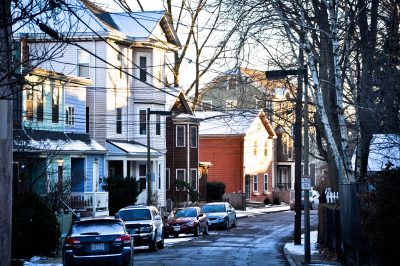The City of Boston permitted 1,023 new units of affordable housing in 2020, which is the largest addition in three years.

The new units, located in neighborhoods across Boston, are part of Mayor Marty Walsh’s Boston 2030 housing initiative, which aims to add 16,000 units of affordable housing — for a total of 70,000 units — by 2030, the 400th anniversary of the city’s founding.
“We are committed to creating a Boston that anyone, at any income level, can afford to live in,” Walsh said in a press release.
Phil Giffee, executive director of Neighborhood of Affordable Housing, said the initiative is designed to support a diverse array of Bostonians with varying income levels and family sizes.
“When one says affordable, that gives one a sense of, you’re aiming at people who don’t have enough to live in the neighborhood anymore,” he said. “But it doesn’t mean just really poor people in public housing, as much as that is needed.”
He said Walsh and the City have made efforts toward increased housing production but housing development is a slow process.
“The city is clearly aimed at the right targets,” Giffee said. “Everybody’s aligned right now in terms of fair housing, in terms of equity, in terms of neighborhood distribution, in terms of looking at where funds come in from the private sector.”
Russell Schutt, professor of sociology at the University of Massachusetts Boston, said the term “affordable housing” applies to an array of housing options aimed at households with different income levels below the region’s average.
“In other words, ensuring that some units are available for people with incomes as low as 30 percent of the area median income, and less so, of course, for people who are homeless,” Schutt said, “and then a portion for people with incomes up to 60 percent and 80 percent and so on.”
In Jamaica Plain, where 44 units were approved in Jackson Square, the median household income was $76,968 in 2015, according to the Boston Planning and Development Agency. In Mattapan, where 135 units will be built at The Loop at Mattapan Station, that number was $43,256 — Boston’s median income sits at $55,777.
Most income-restricted housing in Boston is distributed by a lottery system. Individual applications are available for specific buildings.
Thirty percent of the housing units permitted last year were income-restricted, meaning they were designated for homeowners within a certain financial bracket, according to the press release.
Schutt added that ample affordable housing is especially critical because of the ongoing pandemic, which disproportionately impacts those without stable access to housing.
“There’s just no question that there is going to be a lot greater difficulty affording housing for a great many people,” he said, “and it’s the people who have been disadvantaged to begin with.”
Walsh’s Boston 2030 plan, which was put into place before the pandemic began, is even more important now than when it was introduced, Schutt said.
“Like many very forward-looking and economically vibrant cities, Boston is facing a real paradox of increasing demand for higher income housing, at the same time as there are decreasing opportunities for people to earn a sufficient amount to afford housing within the city,” Schutt said. “I think that creates potential for both sharpening disparities and also tremendous unfairness.”
Boston is projected to house approximately 759,000 residents by 2030 — around a 65,000 person jump — according to the plan. Over 50,000 units of market-priced housing will be permitted by the city in that time.
Schut added that rising housing costs can force long-time residents out of their neighborhoods, despite having contributed to their economy and culture.
“That kind of paradoxical situation is exactly when you need government intervention,” he said.
Government housing plans like Boston 2030, he said, are a necessary foundation for social and economic progress.
“These kinds of standards are a floor, and not a ceiling,” Schutt said. “They’re really essential and are tremendously important, both for creating more housing opportunities but for also symbolizing a commitment of the government to supporting all its residents.”





















































































































